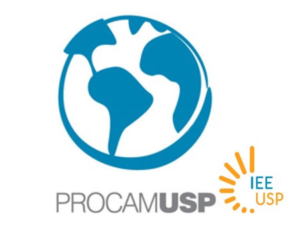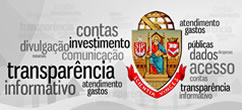Accreditation of New Advisors and Reaccreditation
The Accreditation of New Advisors and Reaccreditation of Advisors should be requested from the Program Coordination through the Form for Accreditation and Reaccreditation of Advisors*, which should be sent to the Postgraduate Service of IEE.
* If you are unable to download the Form, please request it by email to posgraduacao@iee.usp.br
The evaluation process of the requests involves the following steps:
- Strategic analysis by the Program Coordination for new advisors, following the Strategic Policy for Faculty Accreditation in the Postgraduate Program in Environmental Science (2022)
- Evaluation of the merit report on the request and compliance with the minimum accreditation and reaccreditation criteria of the Program (link to the Program Regulations);
- Approval by the Program Coordinating Committee – CCP;
- Approval by the Postgraduate Committee – CPG.
STRATEGIC ACCREDITATION POLICY
The minimum criteria for accreditation are established in the Program’s Regulations, but it is the Program’s Coordination Committee (CCP-PROCAM) that defines the accreditation strategies for the best evaluation of the Program, student and resource acquisition, and the formation of masters and doctors. Interested faculty members can become affiliated with the Program either through self-application or by invitation from the CCP, provided they are approved by the Coordination Committee (CCP-PROCAM) and the Postgraduate Committee (CPG), based on compliance with the Minimum Accreditation Criteria and the strategic policy.
The Strategic Accreditation Policy may be reviewed and updated each year, as well as at the end of the CAPES evaluation cycle, in order to plan for the new evaluation period. The Program’s strengths and weaknesses and emerging themes in Environmental Science will be considered, as well as the definition of guiding criteria for the analysis of new applications (in addition to the Minimum Criteria for Accreditation already established in the PROCAM Regulations).
Among the guiding criteria are:
- Number of accredited faculty members, aiming for an appropriate ratio between permanent and specific faculty members, supervisors/students, and research areas, to strengthen interdisciplinarity in the Program;
Note: The program’s gaps in specific research areas will be prioritized for accreditation analysis. These areas may be disclosed so that faculty members who identify with them can express their interest.
- Prioritization according to the strengthening needs of the Permanent Faculty in the Sucupira Platform (CAPES):
- For permanent faculty (core faculty members who support the Program’s evaluation by CAPES, with their scientific production and participation in the Program):
Minimum dedication of 15 hours per week in the Sucupira registry; offering courses with other Program faculty members, or accreditation of courses from other programs for simultaneous offering, as responsible or collaborator; offering orientation vacancies with regularity.
- For specific/collaborator faculty (Faculty members who are part of the group of supervisors but have reduced dedication to the Program):
- Participation in PROCAM courses, at least as instructors
- For Visiting Faculty (Faculty members from other national or foreign institutions participating in the Program through scholarships or exchange agreements, who may be fully accredited for long-term participation or specifically for short-term participation, qualified to supervise students and offer courses).
The accreditation application will first be evaluated by the CCP-PROCAM based on the current Strategic Policy. If approved, it will then be reviewed by an appointed reviewer and subject to evaluation and decision by the CCP-PROCAM.



